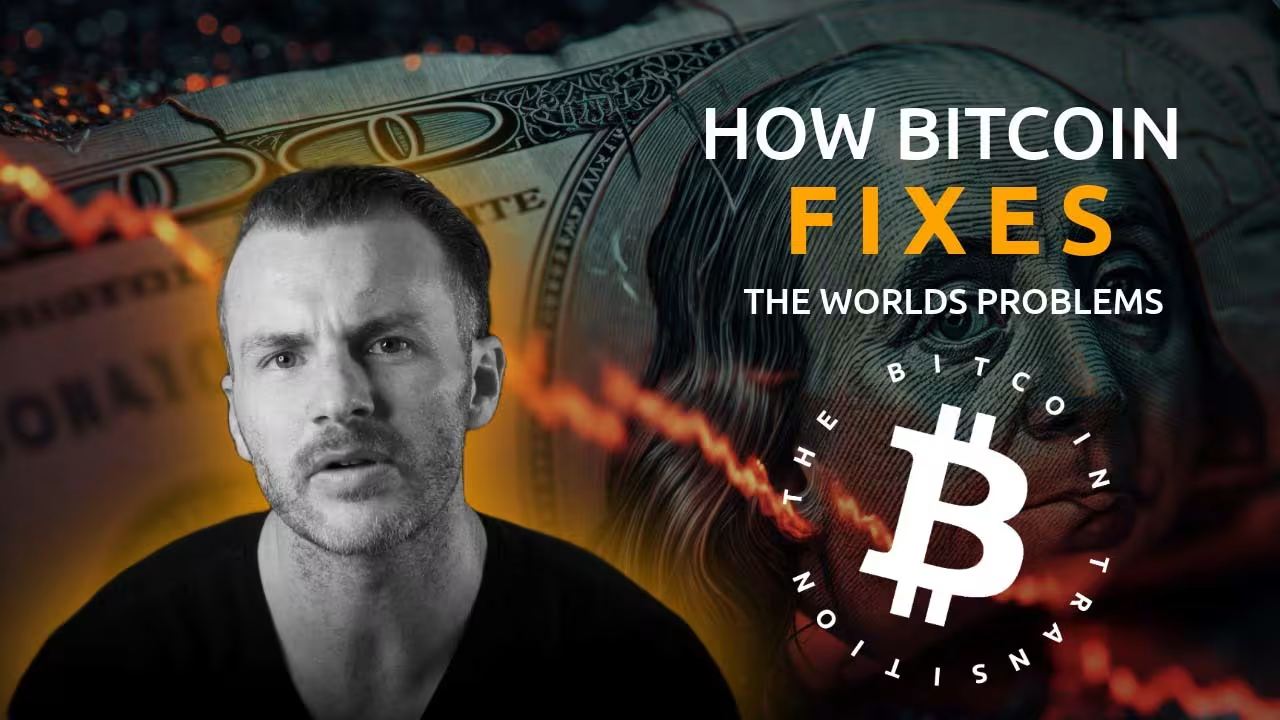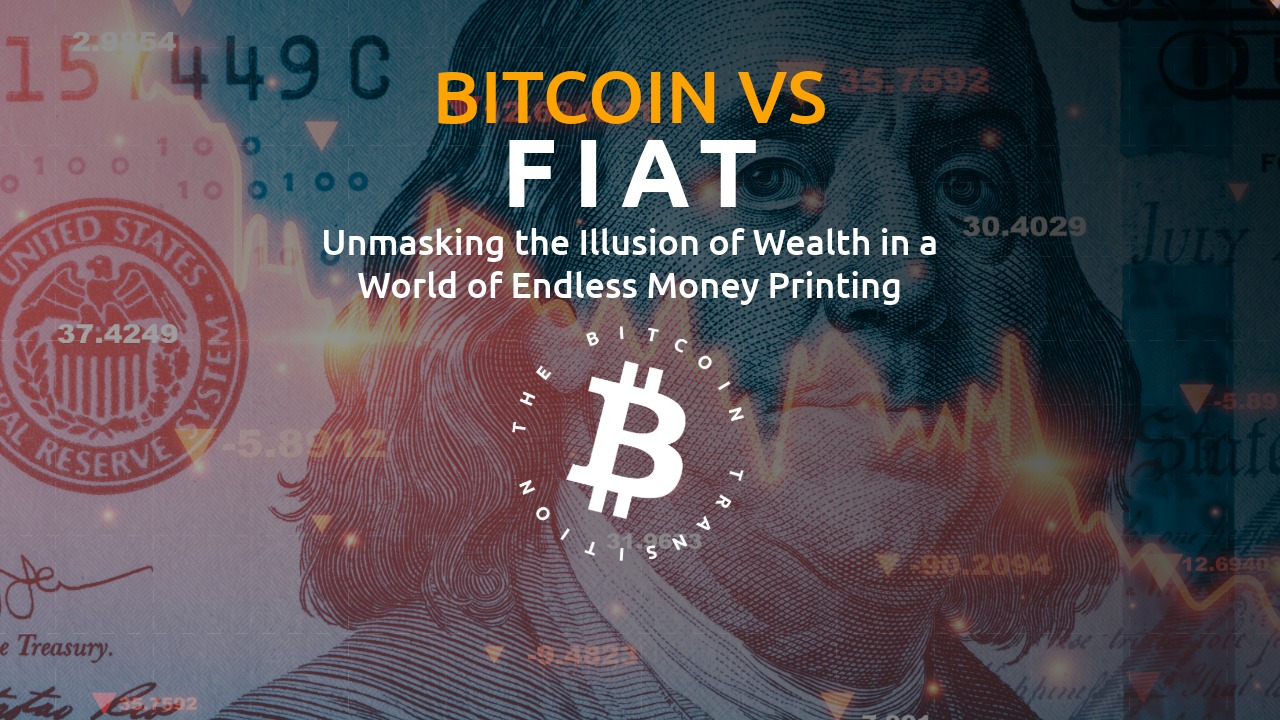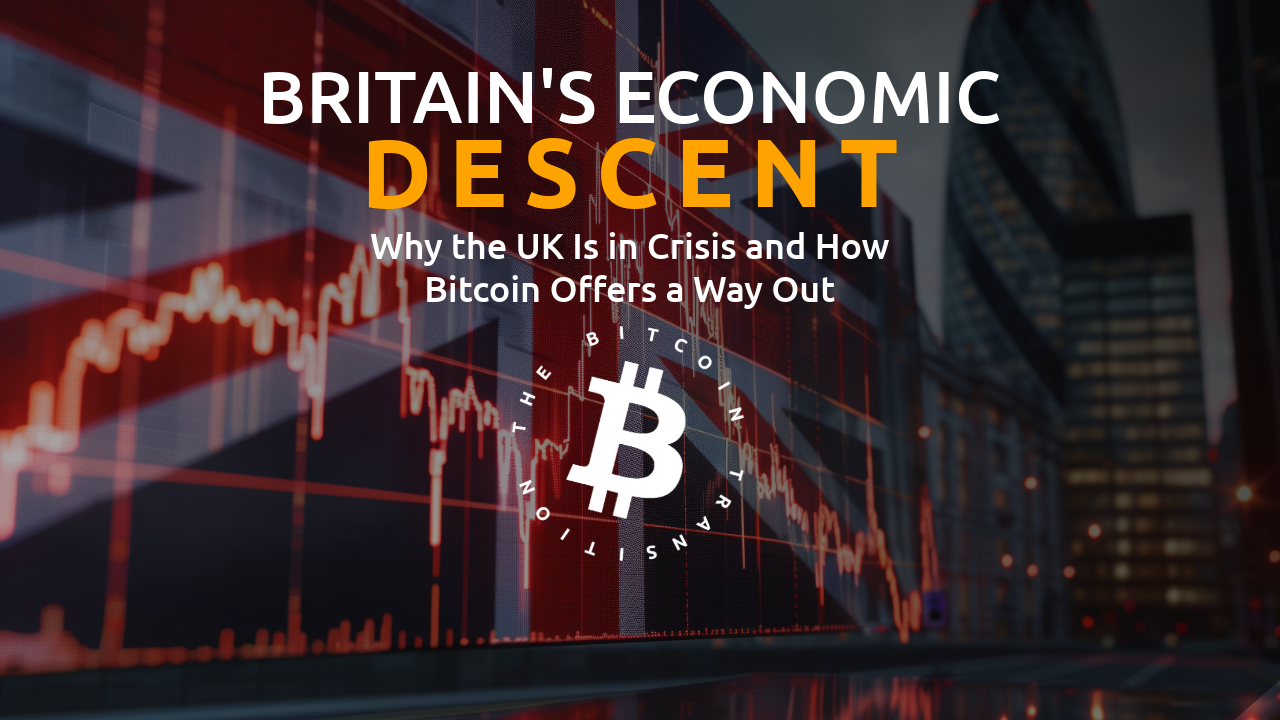How Bitcoin Fixes the World’s Problems
Fix the money, fix the world: how Bitcoin solves pensions, housing, crime, health, and more.

How Bitcoin Fixes the World’s Problems: A Hard Money Blueprint for the Future
Throughout history, the quality of money has shaped the quality of civilisation. When money holds its value, societies prosper. When money is corrupted by inflation and manipulation, economies stumble, and entire generations are left carrying the burden. Today, we are living in the latter case. The fiat currency system—backed not by scarcity but by political decree—has created a cascade of crises across the world.
From pension shortfalls to rising crime, from collapsing birth rates to the erosion of health, many of society’s challenges trace back to the same root cause: the distortion of money. Bitcoin, as the hardest form of money ever created, offers a structural solution. By returning to sound money principles, it addresses not just abstract economics but the lived reality of ordinary people.
Let’s explore how Bitcoin fixes some of the biggest problems of our time.
The Pension Crisis: Promises Without Backing
Governments across the developed world have promised retirees decades of guaranteed income, funded by younger generations through taxation. But this system is breaking down. Why? Because pensions were built on assumptions of constant economic growth and stable money.
In reality, fiat currencies lose purchasing power every year. What looks like a pension fund “worth” billions on paper is eroded in real terms. Add to this declining birth rates (fewer workers paying into the system) and ever-rising life expectancies, and the numbers simply don’t add up. That’s why pension ages keep rising, and “retirement security” is becoming a fantasy for younger generations.
Bitcoin fixes this by reintroducing monetary discipline. A capped supply of 21 million coins means savings can be stored across decades without inflation eating them away. If pension contributions were stored in Bitcoin, the value would not only be preserved but likely grow in real terms as Bitcoin continues to appreciate relative to fiat. Instead of relying on endless government borrowing, individuals could trust that their life savings would retain purchasing power.
The Cost of Living Crisis: Inflation by Design
People everywhere feel it: groceries, rent, energy, and insurance costs spiral upward while wages stagnate. Politicians blame supply shocks, profiteering, or global instability, but the core driver is inflation baked into the fiat system. When central banks expand the money supply, more currency chases the same goods. Asset prices surge, and the essentials of life become harder to afford.
Bitcoin flips this on its head. With a fixed supply, money cannot be debased. Over time, as technology and productivity naturally drive prices down, goods would become more affordable—not less. This is the world we should live in: one where progress means people enjoy cheaper, higher-quality goods, not the illusion of growth propped up by perpetual inflation.
By removing the hidden tax of monetary debasement, Bitcoin restores fairness to the economy. Wages saved in Bitcoin maintain their purchasing power, allowing ordinary families to build stability without being forced onto the hamster wheel of debt.
Declining Birth Rates: The Hidden Cost of Fiat Uncertainty
Across the developed world, birth rates are collapsing. Families delay or avoid having children not because they don’t want them, but because they feel they can’t afford them. Rising housing costs, insecure jobs, and the erosion of savings all combine to make starting a family look financially impossible.
Fiat money plays a central role in this demographic decline. Inflation pushes up the cost of education, housing, and healthcare, while debt burdens hang over young adults. It’s no surprise many choose not to take on the additional responsibility of raising children.
In a Bitcoin economy, where money holds its value and living costs decline with technological progress, financial stability would return. Young families would not face the crushing weight of debt just to secure a home. The confidence that their savings are safe and their future is predictable would encourage population growth. By fixing money, Bitcoin indirectly fixes the demographic time bomb.
Housing Affordability: When Homes Become Speculation
Perhaps nowhere is fiat distortion clearer than in the housing market. Homes—once places to live—have become financial assets to protect against inflation. Investors park capital in property because fiat currencies don’t hold value. The result? Ordinary families are priced out, forced to rent indefinitely or take on life-crippling mortgages.
Bitcoin solves this by removing the incentive to speculate on housing as a store of value. With money that holds purchasing power, people no longer need to treat homes as savings accounts. Housing would return to its natural role: shelter. Speculative bubbles would deflate, and prices would realign with incomes. This doesn’t happen overnight, but over time, Bitcoin would help restore affordability by shifting capital out of unproductive speculation into productive enterprise.
Increase in Crime: Poverty, Desperation, and Fiat
Rising crime rates are often linked to poverty and inequality. When wages don’t cover living costs and opportunities vanish, desperation sets in. Fiat-driven inflation widens wealth gaps—those who own assets get richer, while those who rely on wages get poorer. That inequality breeds resentment, instability, and crime.
Bitcoin’s hard money standard addresses the root cause by narrowing wealth inequality. It rewards savers and workers, not just asset holders. A fairer system with stable purchasing power reduces the desperation that fuels petty crime, while also making large-scale corruption harder. When governments and elites can no longer conjure money out of thin air, accountability is restored.
The Health Crisis: Fiat Food and Perverse Incentives
Walk into any supermarket and you’ll see rows of cheap, processed foods—engineered to maximise profit, not nutrition. Why? Because fiat money incentivises cutting corners for short-term gain. Subsidies distort markets, favouring industrial agriculture and sugar-laden, mass-produced products. Meanwhile, real food—meat, fruit, vegetables—rises in price, putting health out of reach for many.
The result is a global health crisis: obesity, diabetes, heart disease. Healthcare systems buckle under the strain, and billions are spent treating preventable conditions.
Bitcoin fixes this indirectly by removing the fiat incentives that lead to distorted pricing. Under a hard money standard, companies cannot rely on endless cheap credit to expand unhealthy business models. Consumers, with stronger purchasing power, can choose quality over quantity. Over time, this reshapes food production toward sustainability and health, not artificially cheap processed calories.
Price Distortions: The Broken Signals of Fiat
At its core, money is meant to be a measuring stick of value. Under fiat, that measuring stick is constantly changing, bending to the will of central banks. This leads to price distortions everywhere: misallocated capital, endless bubbles, and businesses surviving on cheap debt instead of real demand.
Bitcoin restores honest price signals. Because its supply is fixed, prices reflect real supply and demand, not monetary manipulation. This allows capital to flow into productive areas: innovation, efficiency, and long-term growth. Entrepreneurs can plan with confidence, knowing their investments won’t be upended by sudden monetary policy shifts.
Sound money brings sound decisions.
Hard Money Principles: The Root of All Solutions
All these crises—pensions, cost of living, demographics, housing, crime, health, price distortions—stem from the same disease: fiat money. When money can be printed at will, the incentives of society are warped. Promises are made without resources to back them. Speculation replaces saving. Consumption replaces production.
Bitcoin fixes this because it embodies the timeless principles of hard money:
- Scarcity: Supply is capped at 21 million.
- Credibility: Its rules are enforced by code, not political whim.
- Portability: It moves seamlessly across borders and generations.
- Divisibility: It can be used for everyday purchases or billion-dollar transfers.
- Durability: Digital, decentralised, and secured by the world’s most powerful network.
These traits restore fairness, accountability, and discipline to money. And with sound money as the foundation, society can begin to rebuild.
Conclusion: Bitcoin as a Path Forward
The world’s problems may look diverse—pension shortfalls, rising costs, crime, poor health, distorted markets—but they share a common origin in broken money. Fiat currency undermines savings, inflates costs, and rewards speculation over productivity. It is a system designed to decay.
Bitcoin offers an exit. It is not a magic wand, but it is the strongest foundation we can build upon. By aligning money with truth and scarcity, it sets the stage for a society where promises can be kept, work is rewarded fairly, families can grow, homes are affordable, food is real, and prices reflect reality.
Hard money has always been the backbone of civilisation. Bitcoin is the hardest money humanity has ever known. If we are serious about solving the crises that plague our world, the first step is clear: fix the money.


